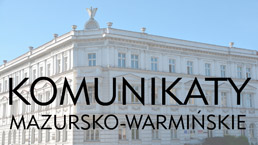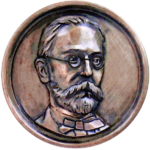W opracowaniu
Aktualny numer
Numery specjalne
Archiwum
O czasopiśmie
Redakcja
Rada Redakcyjna
Recenzenci
Instrukcja redakcyjna
Zasady etyki publikacyjnej
Zasady recenzowania
Ghostwriting
Prawa autorskie i polityka Open Access
Klauzula informacyjna RODO – dla autorów artykułów zgłoszonych do publikacji w kwartalniku „Komunikaty Mazursko-Warmińskie”
Kontakt
Cennik
PROJEKTY
Państwowa Stadnica Koni Liski i jej wkład w rozwój jeździectwa na Warmii i Mazurach
1
Katedra Turystyki, Rekreacji i Ekologii
Uniwersytet Warmińsko-Mazurski
Data publikacji online: 02-08-2016
Data publikacji: 02-08-2016
KMW 2016;292(2):289-301
SŁOWA KLUCZOWE
DZIEDZINY
STRESZCZENIE
A year after the establishment of the Olsztyn voivodeship (1946), there were created on its territory the
first state horse pedigree breeding centres. Thus, there was launched the process of breeding, which in its initial
stage had no specific direction. Only when the State Department of Horse Breeding took a decision to rebuild the
East Prussian breed and were further actions ordered. Since 1948, having survived the turmoil of war, Trakehner horses with documented pedigrees were located at the State Stud at Liski. Its further dynamic development
was initiated. For many years, it was continued byJacekPacyński, considered to be an expert on horses and a keen
supporter of equestrian sport. He, as one of the pioneers, co-organized first, unofficial, intercollegiate equestrian
competitions in the region. Over the years, they were transformed into professional competition. Good sports
results promoted native breeding and facilitated the sale of horses. J. Pacyński, as the head of the leading Polish
stud, also paid much attention to the improvement of social conditions of the team. Thanks to his efforts, in the
small village of Liski, there functioned a factory day room with up-to-date press and radio, and in later years also television. It was not only the sportsmen themselves who took advantage of the mounts and the charms of the
breeding centre, but also recreational riding enthusiasts.
Udostępnij
ARTYKUŁ POWIĄZANY
Przetwarzamy dane osobowe zbierane podczas odwiedzania serwisu. Realizacja funkcji pozyskiwania informacji o użytkownikach i ich zachowaniu odbywa się poprzez dobrowolnie wprowadzone w formularzach informacje oraz zapisywanie w urządzeniach końcowych plików cookies (tzw. ciasteczka). Dane, w tym pliki cookies, wykorzystywane są w celu realizacji usług, zapewnienia wygodnego korzystania ze strony oraz w celu monitorowania ruchu zgodnie z Polityką prywatności. Dane są także zbierane i przetwarzane przez narzędzie Google Analytics (więcej).
Możesz zmienić ustawienia cookies w swojej przeglądarce. Ograniczenie stosowania plików cookies w konfiguracji przeglądarki może wpłynąć na niektóre funkcjonalności dostępne na stronie.
Możesz zmienić ustawienia cookies w swojej przeglądarce. Ograniczenie stosowania plików cookies w konfiguracji przeglądarki może wpłynąć na niektóre funkcjonalności dostępne na stronie.




